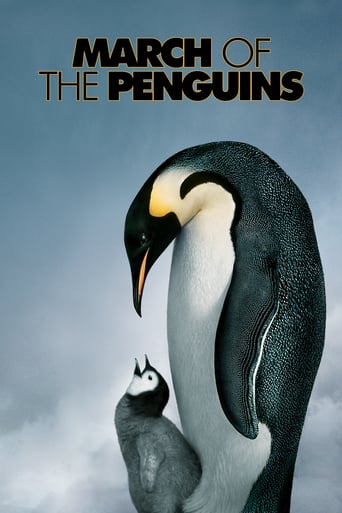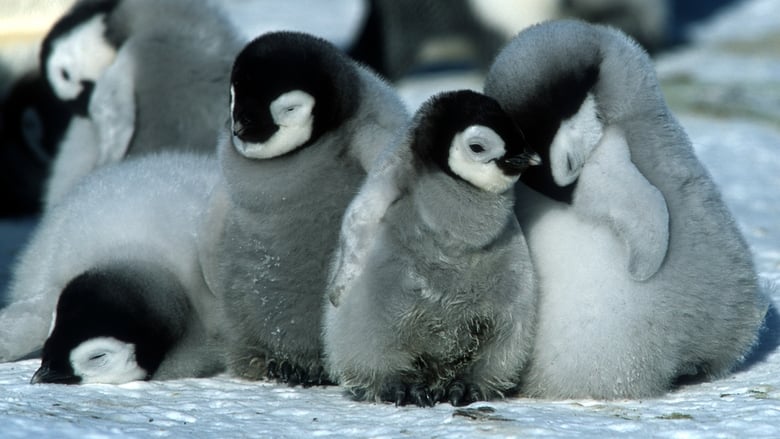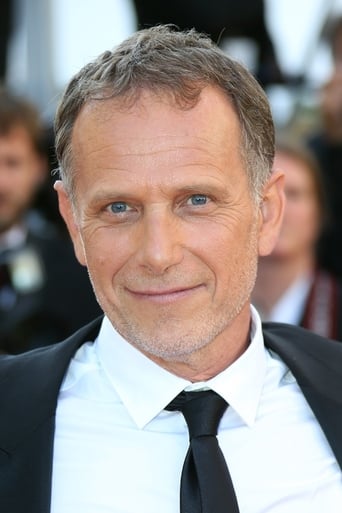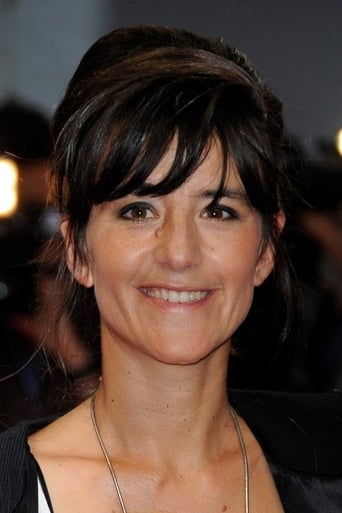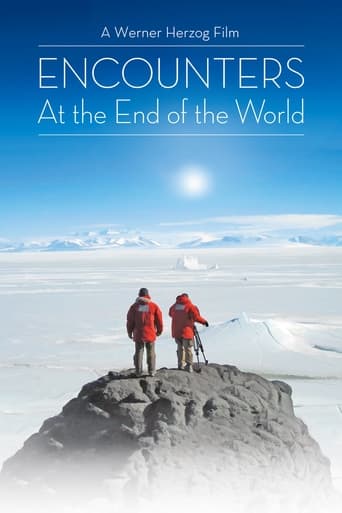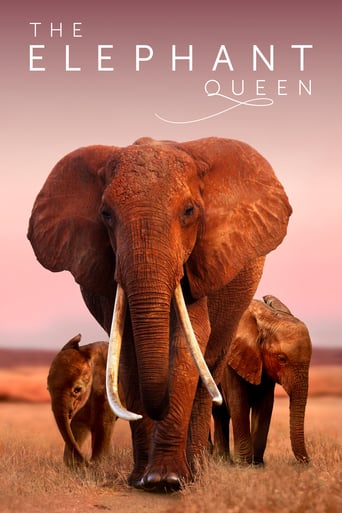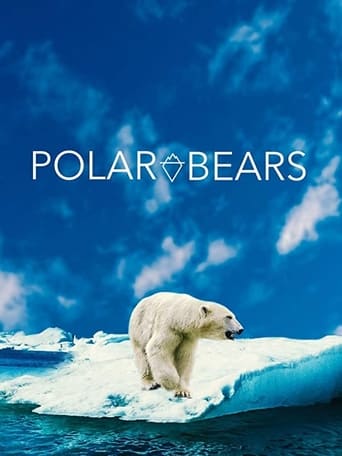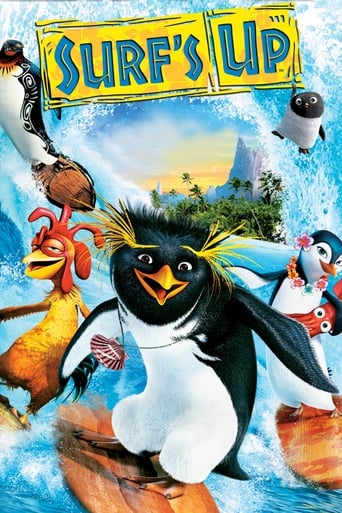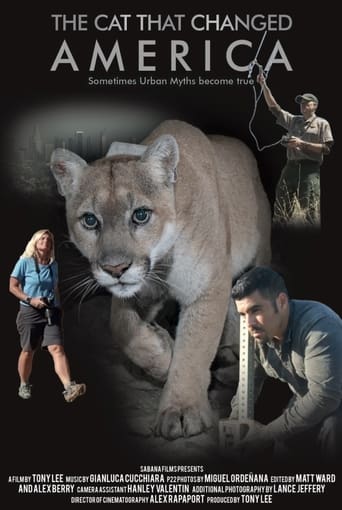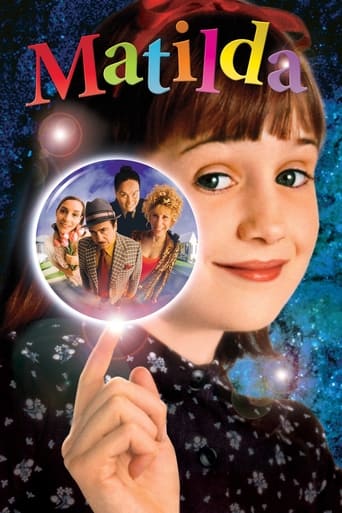March of the Penguins (2005)
Every year, thousands of Antarctica's emperor penguins make an astonishing journey to breed their young. They walk, marching day and night in single file 70 miles into the darkest, driest and coldest continent on Earth. This amazing, true-life tale is touched with humour and alive with thrills. Breathtaking photography captures the transcendent beauty and staggering drama of devoted parent penguins who, in the fierce polar winter, take turns guarding their egg and trekking to the ocean in search of food. Predators hunt them, storms lash them. But the safety of their adorable chicks makes it all worthwhile. So follow the leader... to adventure!!
Watch Trailer
Cast


Similar titles
Reviews
To me, this movie is perfection.
It's no definitive masterpiece but it's damn close.
Great Film overall
It's easily one of the freshest, sharpest and most enjoyable films of this year.
Wonderful documentary.The telling of how emperor penguins in the Antarctic travel a vast distance to mate and how the parents then have to endure the harshest conditions on Earth to ensure their offspring are born, survive and thrive. A story of life, survival, and regeneration. Incredible footage. Some amazing camera placements and angles. There could not have been a manned camera in some of the spots, so passive cameras were used. Very ingenious placement at times.Then, of course, there is the narration. Nobody could have done it better than Morgan Freeman. Such gravitas and feeling.A great reminder of the wonder of nature, and the struggles that some species undergo to survive and grow.
Fascinating and beautifully made documentary narrated by actor Morgan Freeman shows the migratory journey of a colony of emperor penguins at the south pole who must make the 70-mile trek from their shores inland in order to get to the mating grounds, where they face even more hardships, as it is the mothers who must make the return journey to the water in order to find food(evading waiting predators), and the fathers who stay behind to take care of their egg by concealing them under a flap of furry skin to shield them from the blistering cold, while they face starvation themselves. Even after the eggs are hatched(not all will survive) they face threats from predators and continued freezing weather, as they live in the harshest climate on Earth... A real achievement in filmmaking will resonate most with animal lovers, but will still appeal to all in fine family entertainment.
I recently watched director Luc Jacquet's newest movie about trees and thought it would also be time to see his Academy Award winning documentary centered on penguins. I found out that i knew nothing about these wonderful animals and their strenuous march. Those moments where they meet coincidentally and when they "kiss" each other were simply perfect. As great as these moments were, there are also a few sad ones: such as the unsuccessful hatching from the unexperienced penguins. And of course once gotten out of the eggs, the little penguins are just too cute. I watched the German dubbed version and thought the voice actors for father and mother penguin did an amazing job. Their voices were so soothing. I did not like the young penguin's voice initially, but it grew on me a bit. I read that for the American version, Morgan Freeman did the narration. While he is usually a great narrator, I imagine it difficult to convey the same emotions as they were done here when we had different narrators for mother and father penguin.From the visual aspect, this documentary is a must see: giant ice sheets and we here chilly, almost dreamlike music. It is just too awesome how the little penguins slide over them on their bellies while making the most amazing noises. It is truly funny to see the penguins walking right behind one another as if they were standing in an almost never-ending queue and they are making funny moves with their heads all the time. When they finally reached the place they were born themselves, they are looking for a partner to father/mother their baby penguins in the future. As there is usually more female penguins than males, there can be quite heavy physical arguments about who gets the male, but once they found each other they hold their beaks very close to one another and softly tough each other with their beaks as well to signalize they belong together for the coming months. The noise we hear in the movie from the penguins is almost robot-like. Those who are alone have not succeeded though and they may not have the slightest chance of survival (one of the saddest scenes the dark penguin shadow in the blood-red sky) as the huge quantity of mating penguins creates warmth that keeps each other alive against these icy temperatures at the South Pole.At the beginning of June, the egg is laid and it needs to be covered immediately by the amazingly fluffy belly fur of the penguins as otherwise the beating heart inside cannot survive against the cold or the shell may break and make all the struggles for nothing. That is why many eggs with broken shells can be seen, given up by the parents who are on their way back to the sea. When they manage to keep the egg intact though, the father starts keeping it warm for two months while the mother is off to the sea collecting fish. It is truly a smart way in which all the males keep rotating so that everybody gets to be inside the group at some point protected by the warmth from the penguins around him and won't have to freeze. Of course the mothers are in danger too. If they get attacked and killed by seals, the egg is lost as well without the father knowing. If the father does not get fish in time, he will have to give up the egg and go to the sea himself in order to stay alive.So lets summarize. The first march is towards the place where they were born and the mating takes place. The second march is the mother going back to the sea getting fish. And the third march is the mother returning to her penguin boyfriend and hopefully intact egg. That third march takes place during darkness, so it an amazing display of orientation. During that time, the father has not eaten for four months and lost half his weight. He is forced to give up the egg any day if the mother will not come soon.Roughly at minute 40 you can see a small beak looking out of the egg and the baby penguins begin to hatch. Cuteness galore. The father regurgitates a white substance that the baby penguin eats right out of his father's throat. The mother arrives and sees the little penguin for the first time. The penguin family is reunited finally. It is amazingly cute to watch this little fluffy gray penguin ball stumbles across the ice. But even there, it is not safe yet. Many parents lose their freshly-hatched penguins to the cold and are so devastated that they try to take other penguins from their parents simply because they cannot cope with the loss they experienced. The noises they make while mourning are pretty heartbreaking as well. And besides the cold there is another danger: skuas (big gulls) who try to catch some of the tiny penguins and eat them. The parents have to give everything to protect them. At the end, we see the young penguins, slightly grown up already leaving together, occasionally jumping on their bellies just like their parents did. They will probably never see their parents again and not much later their own endeavor of marching towards becoming parents is about to start."La marche de l'empereur" is a wonderful wildlife documentary and I can't recommend it enough. Unless you are an ultimate expert on penguins, you will learn so much about them. I'm happy I decided to give it a watch.
Morgan Freeman narrates this documentary about penguins in the Antartica or South Pole region where French scientists cover a year in their lives. The photography or cinematography is first rate and the documentary looks beautiful because of the scenery and it's characters which is a penguin colony. Here, the scientists observe and learn about the penguins' lives in the Antartica part of the world during the coldest weather. It's amazing to see Antartica so beautiful, so untouched nor destroyed by mankind to be allowed such crisp, clearness, clarity, pristine beauty, etc. Antartica should always be preserved and protected by the world. Anyway, the penguins are the major inhabitants. These beautiful creatures must endure harsh storms and predators seeking food. They are a community of parents and children where mothers and fathers leave their young to search for food in the ocean. It's an amazing voyage of watching the baby penguins grow and bond with their parents.

